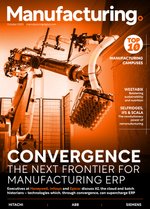Bosch to become carbon neutral by 2020

German multinational manufacturer Bosch has committed to becoming carbon neutral by 2020.
Calling the initiative “unprecedented in scope and timeframe,” Bosch says they will achieve the “earliest carbon neutrality of any global industrial enterprise.”
Detailing the short and long term elements of the plan, Bosch says that, regarding the former, they will be buying more green electricity and utilising carbon offsets. In the longer term, up to 2030, “the company will gradually increase the share of renewable energy in the power that it generates and buys, and will invest a billion euros to boost its locations’ energy efficiency.”
SEE ALSO:
- Bosch granted approval to test autonomous driving tech in Victoria, Australia
- Bosch partners with Mojio to deliver its first digital platform for connected vehicles
- Bosch has revealed some of its latest technologies to promote automotive connectivity
- Read the latest issue of Manufacturing Global here
Dr. Volkmar Denner, chairman of the board of management at Bosch, called for others to follow suit if the world is to achieve the goals set out in the Paris climate agreement of 2015, saying “everyone has to contribute to climate action.” He continued: “We are not starting from scratch. We have consistently exceeded our targets for the relative reduction of carbon emissions. Now the time has come for absolute targets. Let the final countdown begin.”
The strong words were backed by the announcement of the investment of €1bn ($1.12bn) in its plants and buildings over the course of the next ten years. A further €1bn is set aside for the added costs incurred from green electricity and carbon offset programs.
Denner continued to say that “we see climate action as our responsibility, and believe we have to act now.” Accordingly, Bosch using its press release to detail other steps it has taken towards carbon neutrality, such as the “460 photovoltaic modules installed on the roofs of buildings” at its Renningen facility.

